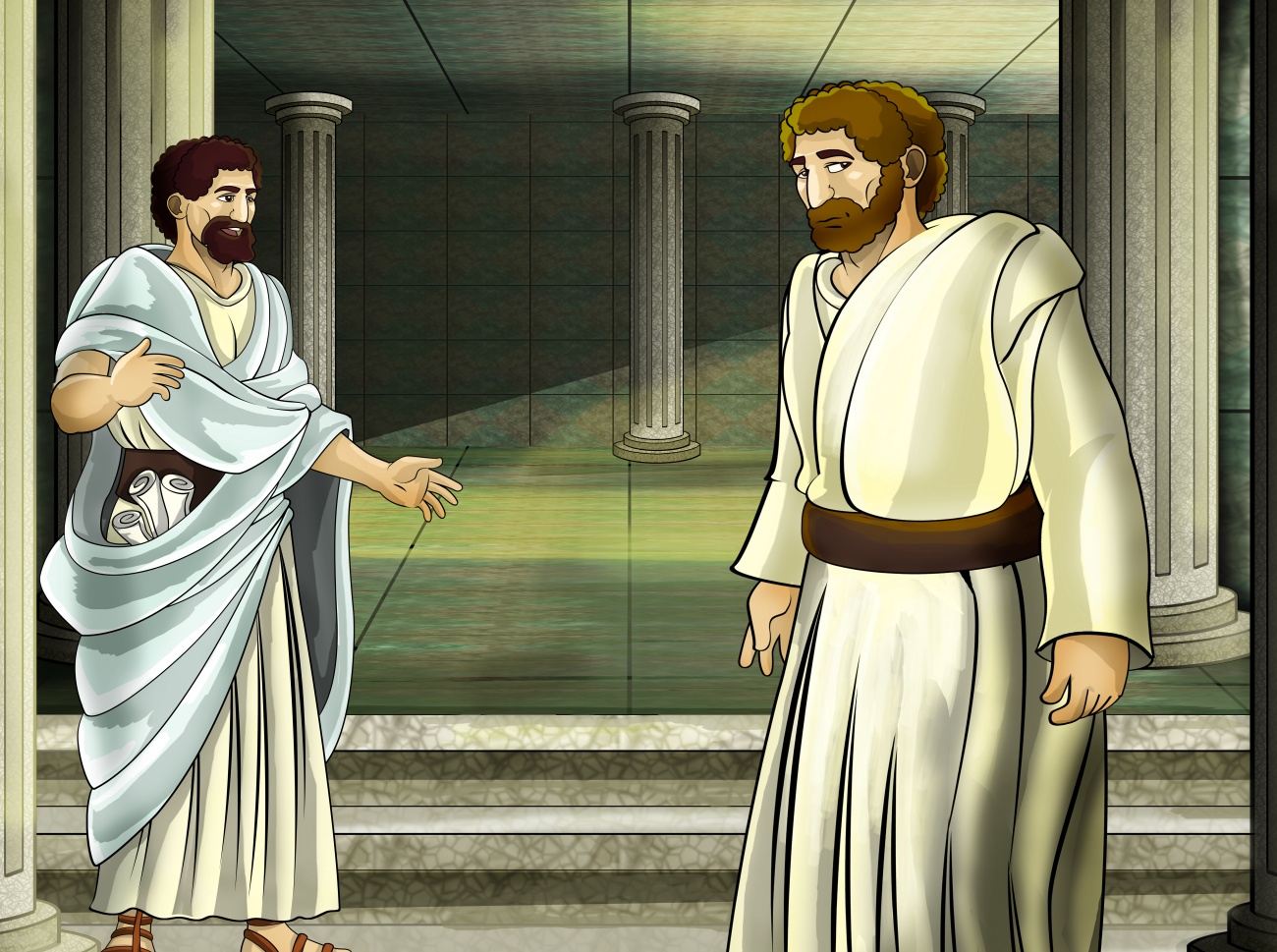In John’s Gospel, chapter 11, verses 51-52, we hear the Pharisee, Caiaphas, who was in the position of high priest that year, telling the Sanhedrin, under the inspiration of the Holy Spirit, the following prophecy about Jesus and his mission that, “Jesus was going to die for the nations, and not only for the nation but also to gather into one the dispersed children of God.”

The irony here is that Caiaphas does not realize that his prophetic words are not of his own making but are of the Holy Spirit. He thinks he has come up with a solution for the “problem” of Jesus. It is from that moment that they began to plot Jesus’ death. He and the Sanhedrin did not understand the paradox that Jesus’ sacrificial death on the Cross would bring about the possibility for something that has eluded humanity from the Fall of Adam and Eve to today, that is the possibility of, once again, being one with God. This unity is to be understood as both personal and universal.
I quote here from the morning prayer for today in the prayer book, Magnificat, “The unity for which Christ lived and died is not an abstract ideal. It is the result of hard work: suspending judgment, choosing others before self, forgiving, seeking reconciliation rather than nursing hurt pride. In other words, it requires that we die to self in Christ. The fruit? The blessing of God’s peace.”

In these few words of commentary, we see four realities. First, we see the virtues that are needed for this unity with God and others. Second, we can see clearly the reasons for the scandalous divisions in Christianity, and in society, that is, that these virtues, though known and even preached, are not practiced well, not even by we who call ourselves disciples of Christ. Third, we see what it takes to gain these virtues, that is, hard work. The fourth reality that we can see here is that there is a holy fruit that comes from living these virtues, that is, “God’s peace.” And do we not crave that peace?
What is the hard work that we, as committed followers of Jesus Christ, have to take up personally and communally? It is the hard work of learning true humility. It is this humility that is required for us to learn the real and true value of “suspending our judgments of others.” It is only in humble love that we can find the strength to “choose others before self”. It is out of humility that we find the courage “to forgive” and “to seek reconciliation rather than nursing hurt pride.” These are the ultimate goals of the three theological virtues we all pray earnestly for, that is, Faith, Hope, and Love.

Do we believe Jesus when he prays to the Father: “May all be one, as you, Father, are in me and I in you, that they also may be in us, that the world may believe that you sent me,” (Jn 17:21)? Or, “Holy Father, keep them in your name that you have given me, so that they may be one just as we are,” (Jn. 17:11)? If we really do believe his desire for this oneness with him, then we must ask ourselves: What keeps us so divided? This division is completely contrary to God’s desire and design. This division is our continuing sin, but we also believe in the paradox that a sin recognized is reason for hope. Our divisions don’t just divide us from one another, but from God. Let us pray hard and earnestly, in the name of Jesus, for the unity that he prayed to the Father for on our behalf. Amen.
SKM: below-content placeholderWhizzco for FHB

